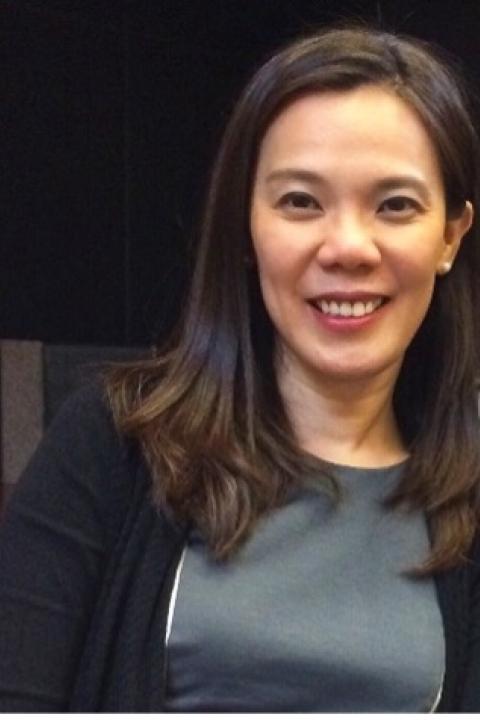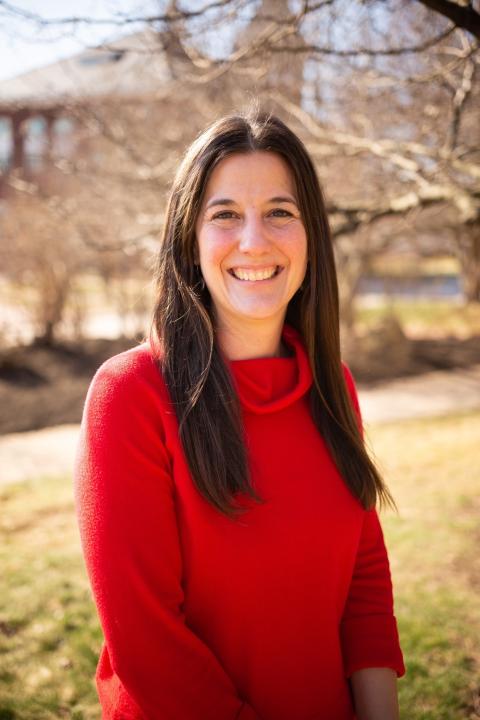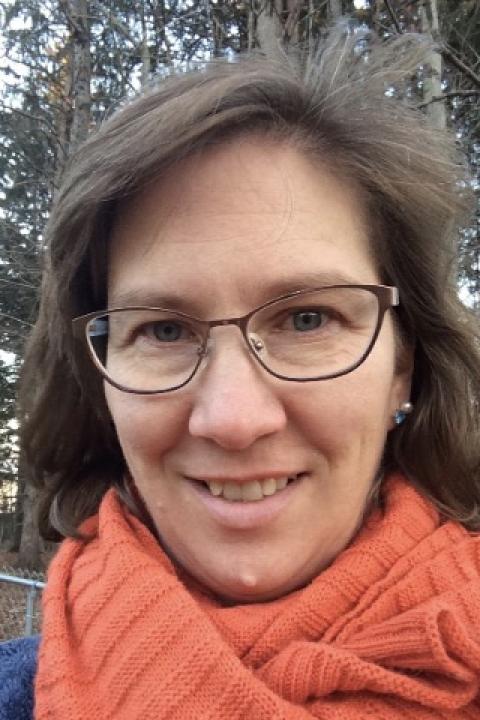PSU has offered the baccalaureate social work (BSW) degree since 1983 and has been fully accredited by the Council on Social Work Education (CSWE) since 1995. CSWE is the national educational policy and accreditation standard setting organization for BSW and MSW degree programs in the United States. Accreditation indicates that a program has achieved academic excellence by meeting the thresholds for professional competence established by the Council. The program has an excellent, committed faculty, an engaged group of students.
Program Mission
The mission of the Social Work Program is to educate and prepare baccalaureate students for effective, evidence-based professional social work practice that is rooted in the purpose and values of the profession, including respect for human dignity, diversity, self-determination, and advocating for just policies, programs, and services. In congruence with the University's philosophy, "Ut prosim,” or “that I may serve,” the program advances knowledge and critical thinking skills to prepare students for generalist practice with diverse individuals, families, groups, organizations, and communities and to enhance the fulfillment of human potential. The program is committed to promoting the values of social and economic justice (Revised and Adopted by Social Work faculty on February 13, 2023).
Program Goals
The goals of the BSW program are to prepare students to respect human diversity, oppose social and economic injustice, and support and advocate for social reform in accordance with the NASW Code of Ethics. This preparation is rooted in the social work curriculum, which helps students develop professional values and ethics, as well as the social work practice skills needed to assist individuals, families, groups, communities, and organizations. Graduates of the BSW program will be able to:
1. Identify as a professional social worker, apply professional values, social work ethics, and respect for human diversity to guide professional practice, and apply critical thinking to inform and communicate professional judgments.
2. Understand the effects of oppression, discrimination, and inequality in a complex, diverse, and global society, and use practice skills to promote social and economic justice and deliver effective and culturally responsive social work services.
3. Apply the Person-in-Environment perspective and knowledge of human behavior and the social environment to work with individuals, groups, families, organizations, and communities, and respond to changing social contexts that impact practice.
4. Engage in BSW-level social work practice (engagement, assessment, intervention, evaluation) informed by the best available research and practice evidence and engage in critical self-reflective practice.
Social Work is a specialized degree that prepares students for generalist social work practice in a wide range of settings to work with children, youth, families, and adults. The curriculum has its foundation in the liberal arts, focusing on the biological, psychological, and social sciences, and provides content on the knowledge, skills, and values of social work. The curriculum integrates content on values and ethics, human diversity, populations-at-risk, and the promotion of social and economic justice.
The Council on Social Work Education (CSWE) granted initial accreditation to the program in 1995. By continuing to meet CSWE’s standards, the program received full reaccreditation in June 2015 for the eight-year cycle, ending in 2023. The curriculum provides content on human behavior and the social environment, social welfare policy and services, practice theory and skills, research, and field education. The field education component (450 supervised hours) provides students with a hands-on learning experience at human service agencies throughout New Hampshire.
Interested students may obtain additional information about the program’s mission, admission and continuance requirements, and other academic policies, by contacting the Social Work Program, accessing the Program’s homepage, or referencing the Program’s Student Handbook. The following is a brief summary of the Program’s academic policies:
Admission Requirements
Students accepted by the University must also meet the requirements of the Department for admission. To apply, students must
- be enrolled in or have completed Introduction to Social Work (SW 2200),
- complete an application by submitting a written statement (see Social Work Student Handbook or Social Work homepage for more information and to complete the application), and
- participate in a personal interview with a member of the Social Work faculty.
The criteria and procedures used for admission are based on the academic and professional standards established by the Council on Social Work Education, the national accrediting body. The criteria used for assessment are:
- intellectual qualities and academic skills;
- commitment to the enhancement of quality of life for individuals and families;
- concern for issues of social justice and sensitivity to cultural diversity; and
- capacity for self-awareness and self-evaluation.
The Department of Social Work encourages applications from students from diverse backgrounds including race, color, ethnicity, national origin, immigration status, culture, political ideology, gender, gender identity and expression, sex, sexual orientation, social class, family type, religion, age, and physical and mental abilities. Students are advised to apply by their sophomore year. Applicants will receive notice regarding the decision within 14 calendar days of the interview. Students may be accepted provisionally and will develop, with the help of a faculty member, an action plan for improvement in one or more of the above criteria to be worked on during the following semester.
Continuation and Graduation Requirements
Once admitted, students must meet the following continuation requirements in order to gain admission to Social Work Practicum (SW 4430) and the concurrent Social Work Integrative Seminar (SW 4550), and to graduate with a BS in Social Work:
- a grade of C or better in the required (SW) Foundation Courses:
Course List Course Title Credits SW 2200 Introduction to Social Work 4 SW 2300 Case Management and Advocacy 3 SW 2400 Professional Writing for Social Work 1 SW 3450 Social Welfare Policy and Services 3 SW 3520 Theory and Practice of Social Work Intervention II 3 SW 3530 Theory and Practice of Social Work Intervention III 3 SW 3610 Theory and Practice of Social Work Intervention I 4 SW 3660 Human Behavior and the Social Environment 4 SW 4020 Social Work Research Methods (TECO) 3 SW 4550 Social Work Integrative Seminar (WRCO) 3 - a minimum major grade point average of 2.5 (all courses required for the major)
Students who wish to be readmitted into the major need to follow the most current Catalog.
Transfer credit is not granted for either the Practicum or the Social Work Seminar. Academic credit for life experience and previous work experience shall not be granted in lieu of any course required for the major.
These academic standards should be monitored by the student and their faculty advisor throughout the student’s Social Work education. To be admitted to the Practicum and the Seminar (Social Work Integrative Seminar (SW 4550)), students must have completed all of the course requirements of the major, achieved an overall grade point average of 2.0 and a major grade point average of 2.5, and earned a grade of C or better in the eight Social Work Foundation Courses (as listed above). Permission to enter the field will be granted in writing by the Program Director or the Field Education Director.
In addition to academic requirements, students are required to demonstrate professional and ethical behavior. Student behavior that is contrary to the ethics of the profession will be reviewed by the program to determine the student’s appropriateness for continuance in the major. Behaviors that would warrant such a review are based on the Code of Ethics of the National Association of Social Workers (NASW). Examples of unprofessional or unethical behavior include impropriety in personal conduct (such as dishonesty or criminal behavior); exploitive relationships (such as sexual relationships or other behaviors pursued for personal advantage), e.g., with practicum clients; and any form of illegal discrimination or discrimination contrary to Plymouth State University policy (see the NASW Code of Ethics).
Curriculum & Requirements
| Course | Title | Credits |
|---|---|---|
| Major Requirements | ||
| SW 2200 | Introduction to Social Work | 4 |
| SW 2300 | Case Management and Advocacy | 3 |
| SW 2400 | Professional Writing for Social Work | 1 |
| SW 3050 | Perspectives on Aging (WECO) | 3 |
| SW 3450 | Social Welfare Policy and Services | 3 |
| SW 3430 | Diversity and Oppression (DICO) | 3 |
| SW 3610 | Theory and Practice of Social Work Intervention I | 4 |
| SW 3520 | Theory and Practice of Social Work Intervention II | 3 |
| SW 3530 | Theory and Practice of Social Work Intervention III | 3 |
| SW 3660 | Human Behavior and the Social Environment | 4 |
| SW 4020 | Social Work Research Methods (TECO) | 3 |
| SW 4430 | Social Work Practicum | 12 |
| SW 4550 | Social Work Integrative Seminar (WRCO) 1 | 3 |
| PS 2015 | Introduction to General Psychology | 4 |
| SO 2225 | Foundations of Sociology (DICO) | 4 |
| Children and Families Elective | ||
| SW 3140 | Child Welfare and Family Services | 3 |
| or SW 3150 | Child Maltreatment | |
| Health and Mental Health Elective | ||
| SW 3300 | Mental Health and Society (GACO) | 3 |
| or SW 3500 | Health and Society (GACO,WECO) | |
| Quantitative Reasoning in the Discipline Connection | ||
| Complete one course from the following: | 3-4 | |
MA 2300 | Statistics I (QRCO) | |
SS 3705 | Social Statistics (QRCO) | |
SW 3705 | Social Statistics (QRCO) | |
| General Education | ||
| EN 1400 | Composition | 4 |
| IS 1115 | Tackling a Wicked Problem | 4 |
| MA | Mathematics Foundations | 3-4 |
| CTDI | Creative Thought Direction | 3-4 |
| PPDI | Past and Present Direction | 3-4 |
| SIDI | Scientific Inquiry Direction | 3-4 |
| Directions (choose from CTDI, PPDI, SIDI) 2 | 4-8 | |
| INCP | Integrated Capstone | 3-4 |
| Electives | 23-25 | |
| Total Credits | 120 | |
- 1
Social Work Integrative Seminar (SW 4550) requires a minimum grade of C in the required Social Work (SW) foundation courses and a minimum major grade point average of 2.50 (all courses required for the major).
- 2
Directions should total 16-17 credits because SSDI is waived for BS Social Work.
Check all course descriptions for prerequisites before planning course schedule. Course sequence is suggested but not required.
To complete the bachelor’s degree in 4 years, you must successfully complete a minimum of 15 credits each semester or have a plan to make up credits over the course of the 4 years. For example, if you take 14 credits one semester, you need to take 16 credits in another semester. Credits completed must count toward your program requirements (major, option, minor, certificate, general education or free electives).
| Year One | Credits | |
|---|---|---|
| EN 1400 | Composition | 4 |
| IS 1115 | Tackling a Wicked Problem | 4 |
| MA | Mathematics Foundations | 3-4 |
| SW 2200 | Introduction to Social Work | 4 |
| SW 2400 | Professional Writing for Social Work | 1 |
| PS 2015 | Introduction to General Psychology | 4 |
| CTDI | Creative Thought Direction | 3-4 |
| PPDI | Past and Present Direction | 3-4 |
| Electives | 3-6 | |
| Credits | 29-35 | |
| Year Two | ||
| SW 2300 | Case Management and Advocacy | 3 |
| Health and Mental Health Elective: | ||
| SW 3300 or SW 3500 |
Mental Health and Society (GACO) or Health and Society (GACO,WECO) |
3 |
| SO 2225 | Foundations of Sociology (DICO) | 4 |
| SIDI | Scientific Inquiry Direction | 3-4 |
| Directions (choose from CTDI, PPDI, SIDI) 1 | 4-8 | |
| Complete one Quantitative Reasoning in the Discipline Connection Course from the following: | 3-4 | |
MA 2300 |
Statistics I (QRCO) | |
SS 3705 |
Social Statistics (QRCO) | |
SW 3705 |
Social Statistics (QRCO) | |
| Elective | 6-8 | |
| Credits | 26-34 | |
| Year Three | ||
| SW 3050 | Perspectives on Aging (WECO) | 3 |
| SW 3450 | Social Welfare Policy and Services | 3 |
| SW 3430 | Diversity and Oppression (DICO) | 3 |
| SW 3610 | Theory and Practice of Social Work Intervention I | 4 |
| SW 3520 | Theory and Practice of Social Work Intervention II | 3 |
| SW 3660 | Human Behavior and the Social Environment | 4 |
| SW 4020 | Social Work Research Methods (TECO) | 3 |
| INCP | Integrated Capstone | 3-4 |
| Electives | 3-4 | |
| Credits | 29-31 | |
| Year Four | ||
| SW 3530 | Theory and Practice of Social Work Intervention III | 3 |
| SW 4430 | Social Work Practicum | 12 |
| SW 4550 | Social Work Integrative Seminar (WRCO) | 3 |
| Children and Families Elective: | ||
| SW 3140 or SW 3150 |
Child Welfare and Family Services or Child Maltreatment |
3 |
| Electives | 9 | |
| Credits | 30 | |
| Total Credits | 120 | |
- 1
Directions should total 16-17 credits because SSDI is waived for BS Social Work.
- Aging & Gerontology
- Child Welfare & Family Services
- Developmental Disabilities
- Mental Health
- Substance Abuse
- Health Care
- Juvenile Justice
- Justice & Correction
- Policy Planning
- School Social Work
- Politics/Public Welfare
Explore Program Details
Social Work Club
We strongly encourage students to join the Social Work Club! The student club serves a number of functions in the community and is also a good way to meet other students in the program and develop your own network of support. Students from other majors are also welcome to join. For additional information, please contact Dr. Kim Livingstone at krlivingstone@plymouth.edu
Phi Alpha National Honor Society
Plymouth State University has established a chapter of Phi Alpha (Eta Omicron, established 1998), a national honor society for Social Work Students.
The purposes of Phi Alpha Honor Society are to provide a closer bond among students of social work and promote humanitarian goals and ideals. Phi Alpha fosters high standards of education for social workers and invites into membership, those who have attained excellence in scholarship and achievement in social work. (Phi Alpha members must have a 3.0 GPA and a 3.25 Major GPA)
PSU Social Work Student Trips
PSU Social Work Students have taken several international service trips over the past decade. Below are some of the highlights of recent trips. To receive more information about upcoming service trips, please contact the Social Work Program Office, or email Dr. Kim Livingstone at krlivingstone@plymouth.edu.
-
Associate ProfessorProgram Director, Social WorkEmail: krlivingstone@plymouth.eduPhone: (603) 535-2538
Explore Today.
Realize Tomorrow.








